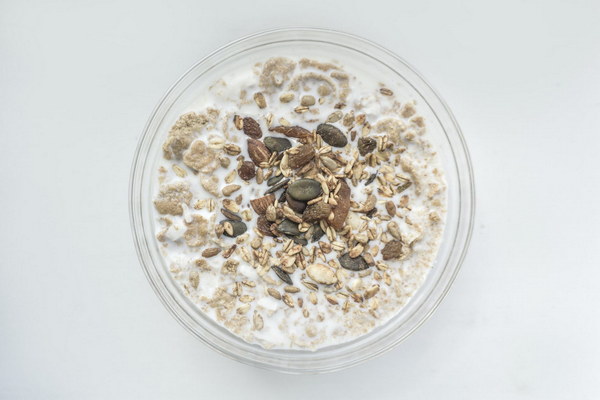Easing the Aging Process Anti-Aging Tips for Sensitive Skin
Sensitive skin can be a challenge to manage, especially when it comes to anti-aging. The delicate nature of sensitive skin often requires gentle yet effective treatments to combat signs of aging without causing irritation. Here’s a comprehensive guide to help you navigate the world of anti-aging for sensitive skin.
Understanding Sensitive Skin
Before diving into anti-aging products and treatments, it’s crucial to understand your skin type. Sensitive skin is more prone to irritation, redness, and allergic reactions. It’s often caused by a compromised skin barrier, which can lead to dryness, inflammation, and sensitivity to environmental factors.
Gentle Cleansing
The first step in any anti-aging routine is to cleanse your skin gently. Harsh soaps and cleansers can strip away natural oils, leaving sensitive skin even more vulnerable. Opt for a creamy, hydrating cleanser that is free from fragrances, sulfates, and alcohol. Look for ingredients like hyaluronic acid, ceramides, or glycerin, which help to maintain the skin's moisture balance.
Moisturizing Regularly
Moisturizing is key for sensitive skin, especially as you age. It helps to plump up fine lines and prevent dryness, which can exacerbate sensitivity. Choose a hypoallergenic moisturizer that contains emollients like squalane, dimethicone, or shea butter. These ingredients create a protective barrier on the skin's surface, locking in moisture and reducing irritation.
Sun Protection
UV rays are a significant contributor to premature aging. For sensitive skin, it’s essential to wear a broad-spectrum sunscreen with an SPF of at least 30 every day. Look for formulas that are fragrance-free and contain zinc oxide or titanium dioxide, as they are less likely to cause irritation.
Incorporating Retinoids Wisely
Retinoids, like retinol, are powerful anti-aging ingredients that can boost collagen production and reduce the appearance of fine lines and wrinkles. However, they can be quite harsh on sensitive skin. Start with a lower concentration and use it sparingly, such as once or twice a week. Apply it at night, as retinoids can increase sensitivity to sunlight.
Chemical Peels and Microdermabrasion
Chemical peels and microdermabrasion can be beneficial for sensitive skin, but they must be done with caution. Consult with a dermatologist or aesthetician who can tailor a treatment plan that suits your skin type. Start with a mild peel or microdermabrasion treatment and gradually increase the intensity if your skin tolerates it well.
Avoiding Irritants and Allergens
Certain ingredients can trigger allergic reactions or irritation in sensitive skin. Avoid products with harsh chemicals, artificial fragrances, and alcohol. Instead, opt for natural ingredients that are known for their soothing properties, such as aloe vera, green tea, and chamomile.
Topical Antioxidants
Antioxidants help to protect your skin from environmental damage and can also help to minimize the appearance of aging. Look for antioxidants like vitamin C, vitamin E, and ferulic acid. These ingredients can be found in serums or moisturizers and should be applied during the day after sunscreen.
Healthy Lifestyle Choices

Aging doesn’t just happen on the surface; it’s also influenced by what you put into your body. Maintain a healthy diet rich in fruits, vegetables, and omega-3 fatty acids. Stay hydrated, get enough sleep, and exercise regularly to support your skin's overall health.
Professional Treatments
If over-the-counter products aren’t enough, consider seeking professional treatments. A dermatologist can recommend medical-grade treatments such as laser therapy, intense pulsed light (IPL), or dermal fillers, which can be tailored to your specific skin needs.
In conclusion, anti-aging for sensitive skin requires a gentle yet effective approach. By understanding your skin's needs and using products that are gentle and non-irritating, you can achieve a youthful appearance without compromising your skin's sensitivity. Always consult with a dermatologist or aesthetician before starting any new anti-aging regimen to ensure the treatments are safe and suitable for your skin type.









